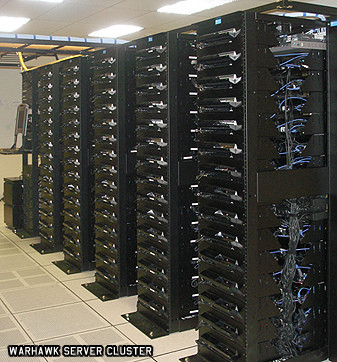A high proportion of IT professionals responsible for “green IT” programs are unsure whether their enterprises are considering carbon pricing, according to a recent Gartner survey. The survey found that 36 per cent of respondents that were responsible for green IT programs in enterprises said it was possible, or they didn’t know, if carbon pricing was influencing their organization’s planning for the next 24 months.
A total of 45.7 per cent of respondents said that carbon pricing was not influencing their organizations planning, while 18.3 per cent said it was influencing their organization’s planning for the next 24 months.
The survey results indicate that for most countries, the percentage of enterprises planning ahead for carbon pricing goes beyond those obliged to consider it under established regulations. However, Gartner advised IT management teams that haven’t already done so, to start building the processes and information systems to gather the necessary data as this can be time-consuming and organizations are likely to be subject to carbon reporting and pricing in the future.
In an international survey completed in December 2008, Gartner asked 626 enterprises about their plans for carbon reporting and pricing, and current and future implementation of carbon reporting, tracking or management systems. The respondents represented an even spread of sectors and company sizes from 1,000 to more than 10,000 employees.
“While the number of enterprises using or planning to use carbon tracking systems exceeds those legally required to do so, given the inevitable requirements to support carbon reporting in the future, the percentage of enterprises preparing is low,†said Simon Mingay, research vice president at Gartner. “Regardless of actual or anticipated regulations, midsize and large enterprises should at least be building carbon information systems, because, whether in a developed or developing economy, pressure will come down the supply chain to be transparent about carbon emissions.â€
The Obama administration is now talking about a carbon cap and trade scheme, along the lines of the EU ETC and Australian CPRS in which enterprises are obliged to buy and/or sell tradable carbon certificates (trading at €12/metric ton as of March 2009) but anticipated to rise as carbon allowances get squeezed. This kind of scheme and others such as the U.K.’s Carbon Reduction Commitment result in a price being placed on a metric tones of carbon.
The survey provided some noteworthy responses from individual countries when respondents asked if the possibility of carbon pricing is influencing their organization’s planning for the next 24 months. The U.K. and France recorded some of the lowest percentages at 7.9 per cent and 10.5 per cent, respectively, while in India and China, 21.1 per cent and 20 per cent of enterprises, respectively, indicated that carbon pricing was influencing planning. Gartner analyst said this is particularly surprising for the U.K. given that the country’s Carbon Reduction Commitment (CRC) goes into effect in 2010 and is estimated to affect 5,000 enterprises.
Gartner also asked the same respondents about their carbon reporting, tracking and management systems, as well as their intentions to implement or extend such systems. The results showed that, as a region, Western Europe is best prepared, with 32 per cent saying that they have some kind of system in place — twice as many as the Asia/Pacific region or the U.S. However, there were some stark contrasts with 2.6 per cent of French enterprises, compared with 74.4 per cent of German enterprises having such systems in place. Most of those enterprises with systems in place had in-house developments (mostly spreadsheets).
A further question asked of the respondents was whether they would be implementing or extending carbon reporting, tracking or management software during the next 18 months. The results showed that most enterprises are not yet thinking about how carbon pricing or reporting requirements will affect their business and have no plans to implement a carbon reporting, tracking or management system to give them visibility of their greenhouse gas emissions in this period.
“This apparent lack of preparation, and the inevitability that most enterprises will come under increased scrutiny from customers, investors, partners, key stakeholders and, eventually, regulators, should come as a wake-up call to policymakers, boards, senior leadership teams and CIOs,†said Mr. Mingay.
Australia has made the most rapid progress overall in this area in the last 15 months, and Gartner expects that to continue during the next 18 months. The proportion of enterprises anticipating implementing carbon management tools during the next 18 months in the Europe, the Middle East and Africa (EMEA) region was low at 17 per cent and the U.S. was slightly more than 18 per cent.
“Enterprises all over the world need to get more serious about greenhouse gas reporting,†Mr. Mingay said. “Despite the lack of specific regulations, midsize and large enterprises in developed economies need to recognize that they will be paying for their emissions at some point — it’s just a matter of when, how much and through what kind of mechanism. Regardless of the recession, enterprises will find themselves under increasing pressure from stakeholders, including investors and customers, to be more transparent about emissions and reduction programs.â€
Additional information is available in the Gartner report “Too Many Enterprises Are in Denial About Carbon Management.†The report is on Gartner’s Web site here
